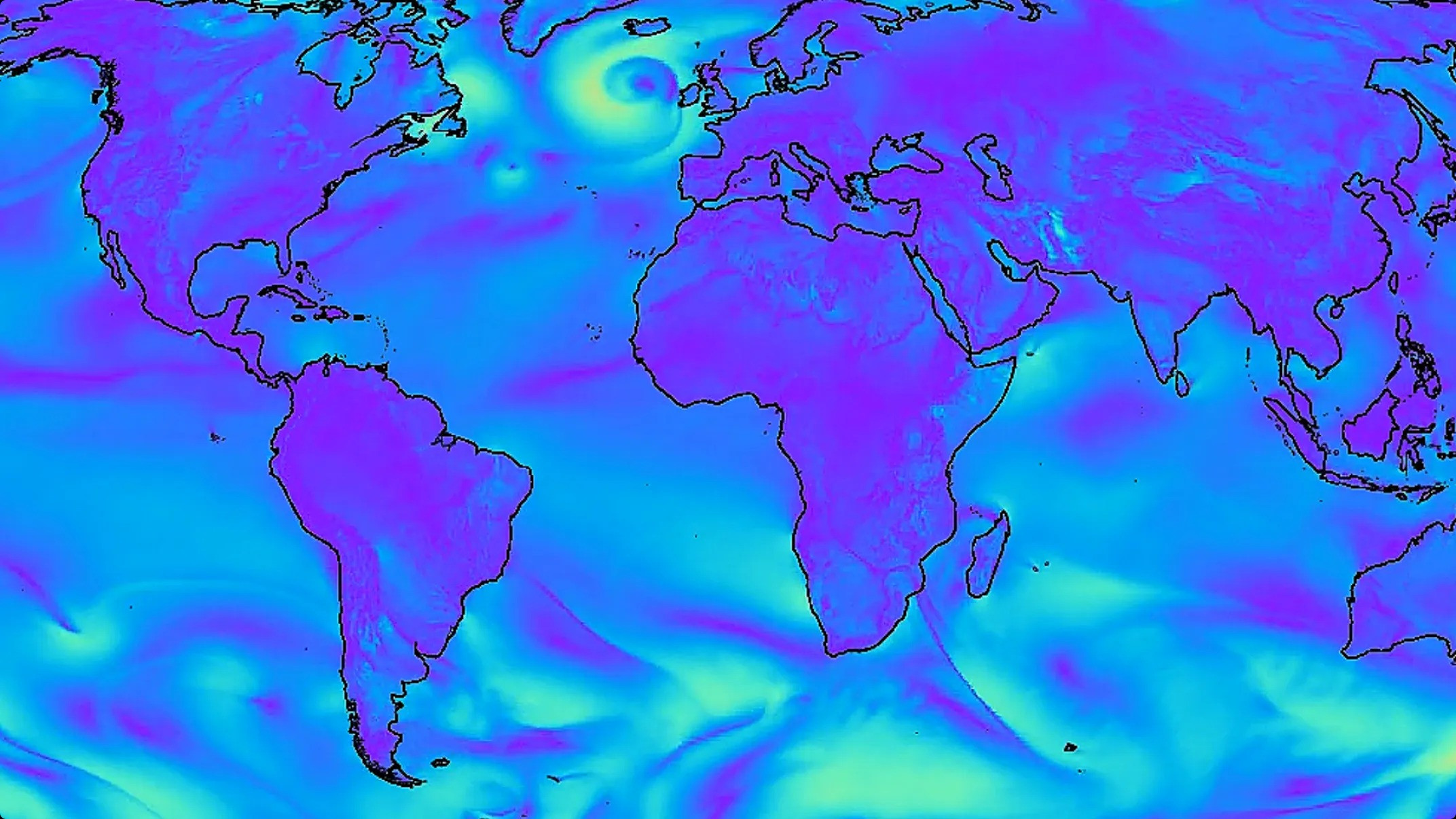
Google DeepMind's Graphcast revolutionises weather forecasting with AI predictions
With AI, traditional weather forecasting tools can go obsolete as Google DeepMind brings together an AI model that will predict 10-day or more, weather forecast in under a minute. The experimental weather software has already succeeded in predicting extreme weather, days before they ocurred, like Hurriace Lee, and other storms in Novia Scotia and Long Island. Researchers have described Graphcast in a science paper as "a graph neural network made up of 36.7 million parameters". Trained on 39 years of data from 1979 to 2017 by the European Centre for Medium-Range Weather Forecasts (ECMWF), the software can produce a ten-day weather forecast, split into six-hour increments. A report by the Financial Times has already vouched that Graphcast predictions were more accurate than conventional forecasts. ECMWF machine learning specialist Matthew Chantry told Business Insider that GraphCast represented "a significant and welcome step forward" for the industry. With a wider variety of data, he believes Graphcast could prove to be much cheaper and more powerful than traditional forecasting tools in the future. "We might be talking about 1,000 times cheaper in terms of energy consumption," he said. "That is a miraculous improvement." Nvidia and Huawei have also built powerful weather models, in a breakthrough for the industry in AI. Veteran forecasters have told WIRED earlier this hurricane season that meteorologists’ serious doubts about AI have been replaced by an expectation of big changes ahead for the field. With ease of use, Graphcast can be run on a laptop easily for a forecast under a minute, while conventional methods require giant supercomputers and take hours to predict the weather. ECMWF's models rely on mathematical simulations modeling the motion of the atmosphere and oceans with fluid dynamics equations, while Graphcast just uses weather patterns in satellite images, radar, and measurements from meteorological stations to make its predictions. The software can predict temperature, wind speed and direction, humidity, and air pressure at 37 different altitudes to help forecast the weather. While Deepmind has warned that Graphcast can sometimes not be accurate in weather predictions, it has, however, taken a leap in using AI to revolutionise weather systems.

With AI, traditional weather forecasting tools can go obsolete as Google DeepMind brings together an AI model that will predict 10-day or more, weather forecast in under a minute. The experimental weather software has already succeeded in predicting extreme weather, days before they ocurred, like Hurriace Lee, and other storms in Novia Scotia and Long Island. Researchers have described Graphcast in a science paper as "a graph neural network made up of 36.7 million parameters". Trained on 39 years of data from 1979 to 2017 by the European Centre for Medium-Range Weather Forecasts (ECMWF), the software can produce a ten-day weather forecast, split into six-hour increments. A report by the Financial Times has already vouched that Graphcast predictions were more accurate than conventional forecasts. ECMWF machine learning specialist Matthew Chantry told Business Insider that GraphCast represented "a significant and welcome step forward" for the industry. With a wider variety of data, he believes Graphcast could prove to be much cheaper and more powerful than traditional forecasting tools in the future. "We might be talking about 1,000 times cheaper in terms of energy consumption," he said. "That is a miraculous improvement." Nvidia and Huawei have also built powerful weather models, in a breakthrough for the industry in AI. Veteran forecasters have told WIRED earlier this hurricane season that meteorologists’ serious doubts about AI have been replaced by an expectation of big changes ahead for the field. With ease of use, Graphcast can be run on a laptop easily for a forecast under a minute, while conventional methods require giant supercomputers and take hours to predict the weather. ECMWF's models rely on mathematical simulations modeling the motion of the atmosphere and oceans with fluid dynamics equations, while Graphcast just uses weather patterns in satellite images, radar, and measurements from meteorological stations to make its predictions. The software can predict temperature, wind speed and direction, humidity, and air pressure at 37 different altitudes to help forecast the weather. While Deepmind has warned that Graphcast can sometimes not be accurate in weather predictions, it has, however, taken a leap in using AI to revolutionise weather systems.
